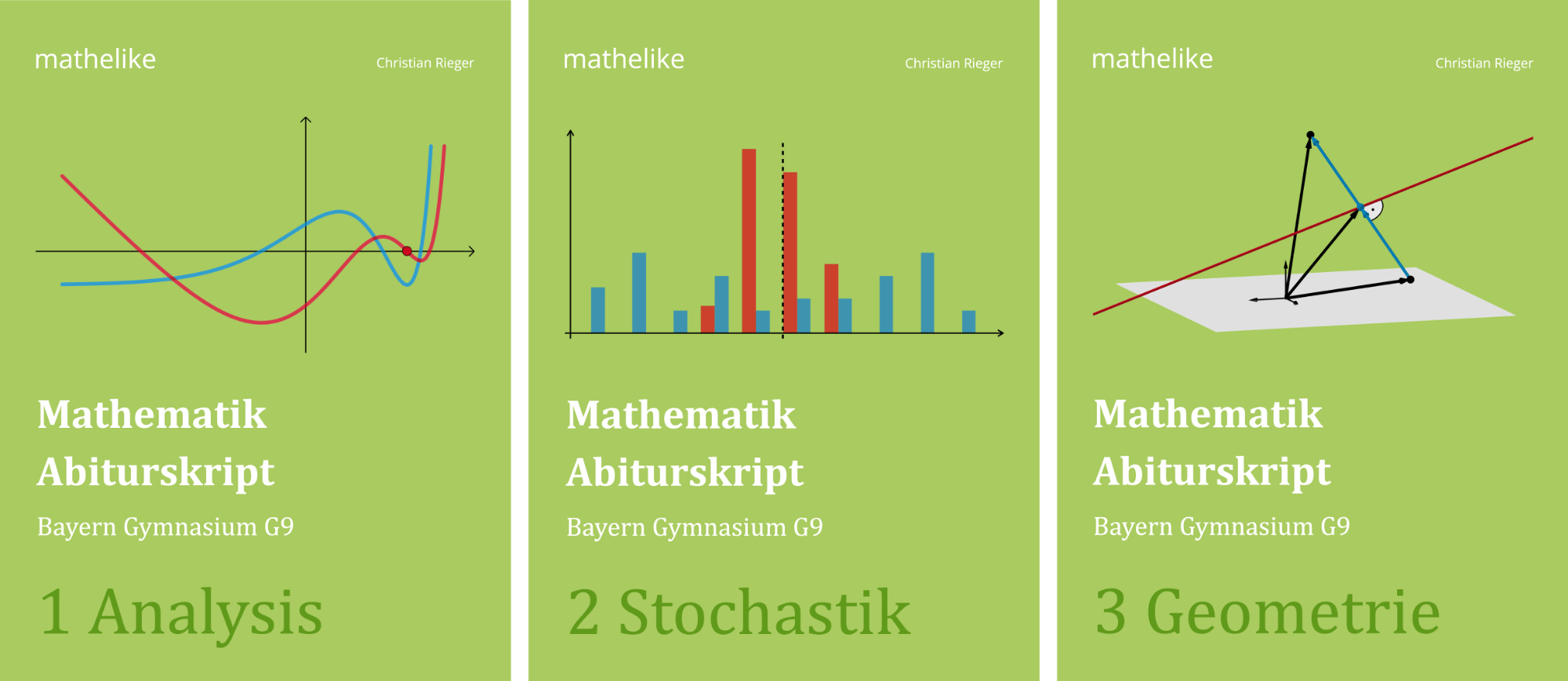Der Punkt \(S\) liegt so auf der Strecke \([AE]\), dass die Pyramide \(ABCDS\) das Volumen \(3\) hat. Bestimmen Sie die Koordinaten von \(S\).

(3 BE)
Lösung zu Teilaufgabe b
\[V_{ABCDS} = 3\]
Die Höhe \(\textcolor{#0087c1}{h}\) der Pyramide \(ABCDS\) ist gegeben durch die Strecke \([AS]\).
Zunächst wird die Höhe \(\textcolor{#0087c1}{h}\) berechnet. Anschließend lassen sich die Koordinaten von \(S\) wie folgt durch Vektoraddition bestimmen.
\[\overrightarrow{S} = \overrightarrow{A} + \frac{\textcolor{#0087c1}{h}}{3} \cdot \overrightarrow{AE}\]
Dabei ist \(\dfrac{\textcolor{#0087c1}{h}}{3}\) der Anteil der Höhe \(\textcolor{#0087c1}{h}\) an der Kantenlänge \(3\) des Würfels (vgl. Teilaufgabe a).

Volumen einer Pyramide
\[V = \frac{1}{3} \cdot G \cdot h\]
\(G\): Flächeninhalt der Grundfläche der Pyramide
\(h\): Höhe der Pyramide
Die Höhe \(h\) einer Pyramide ist der Abstand der Spitze der Pyramide von der Ebene, in der die Grundfläche \(G\) liegt.
\[\begin{align*}V_{ABCDS} = \frac{1}{3} \cdot \textcolor{#e9b509}{G} \cdot \textcolor{#0087c1}{h} \;\Leftrightarrow \; \textcolor{#0087c1}{h} &= \frac{3 \cdot V_{ABCDS}}{\textcolor{#e9b509}{G}} \\[0.8em] &= \frac{3 \cdot 3}{\textcolor{#e9b509}{3^2}} = \textcolor{#0087c1}{1}\end{align*}\]
Koordinaten von \(S\) bestimmen:
\(A(3|2|-1)\), \(\overrightarrow{AE} = \begin{pmatrix} -2\\-1\\2 \end{pmatrix}\) (vgl. Teilaufgabe a)
\[\overrightarrow{S} = \overrightarrow{A} + \frac{\textcolor{#0087c1}{h}}{3} \cdot \overrightarrow{AE} = \begin{pmatrix}3\\2\\-1 \end{pmatrix} + \frac{\textcolor{#0087c1}{1}}{3} \cdot \begin{pmatrix}-2\\-1\\2 \end{pmatrix} = \begin{pmatrix} \frac{7}{3}\\ \frac{5}{3}\\ -\frac{1}{3}\end{pmatrix}\]
\[\Rightarrow \; S\bigg(\frac{7}{3}\bigg|\frac{5}{3}\bigg|-\frac{1}{3}\bigg)\]


